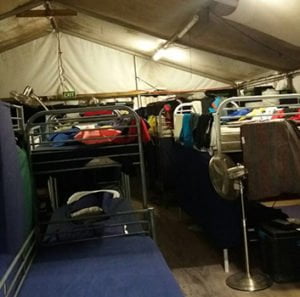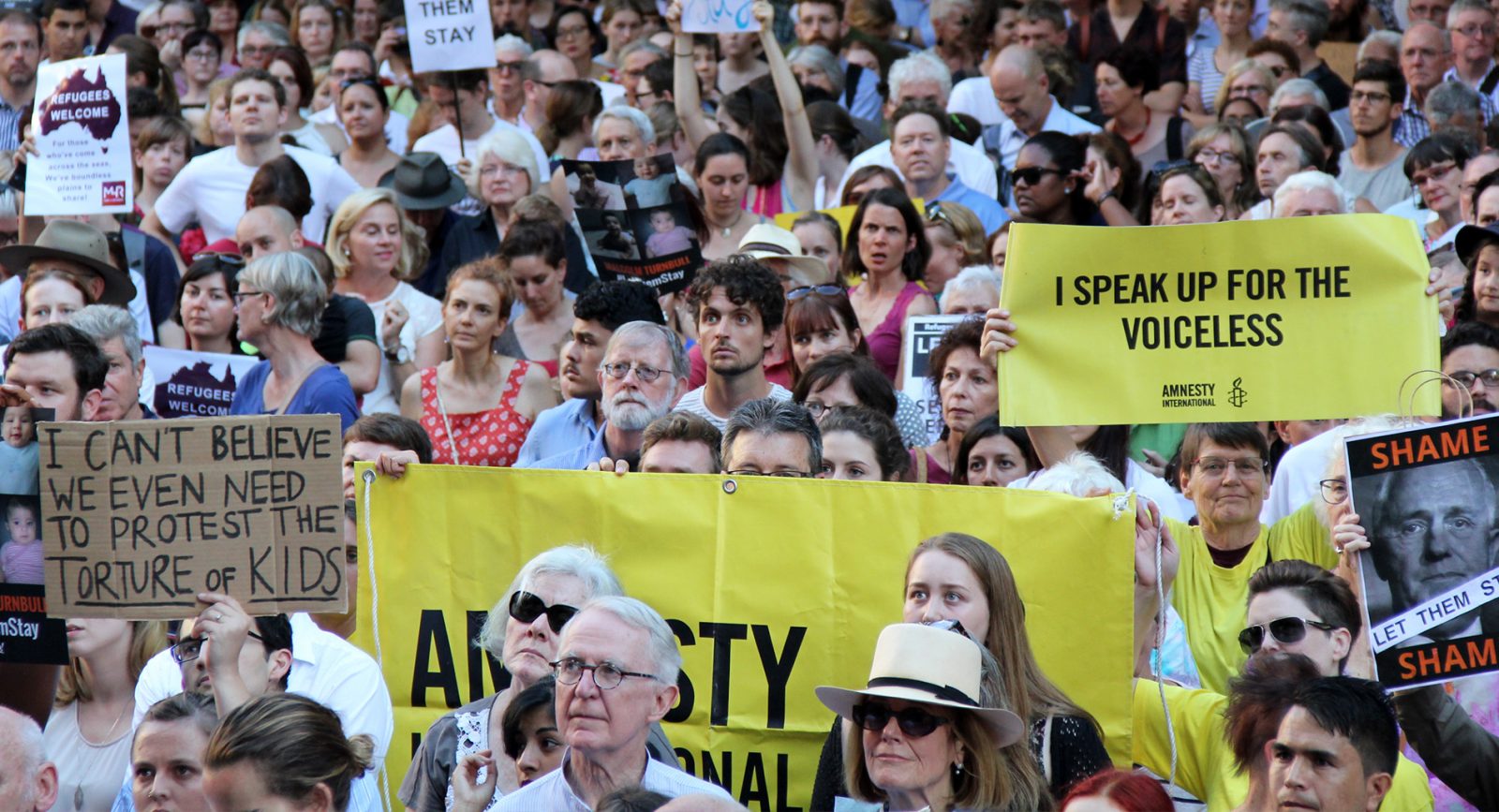Khadija McCarthy-Naidoo, who is in year 12 at Methodist Ladies’ College, is a winner in our Junior Blogging competition. Here she shares her heartfelt plea for the government to shut down the Manus and Nauru detention centres.
“She cries all the time. She has cut herself with a razor on her chin, face, and chest. Every night she wakes up and screams that someone is coming to take her back to Nauru.”
These are the words of a refugee mother, whose seven-year-old daughter fears returning to the detention centre on Nauru.
When will their suffering end?
An asylum seeker is someone fleeing from persecution in search of refuge. Under the Universal Declaration of Human Rights, everyone has the right to seek asylum.
This declaration was signed by the Australian government. Yet, it continues to place asylum seekers in offshore detention on Nauru and Papua New Guinea’s Manus Island. Here they have been detained for indefinite periods of time, which breaks numerous laws and conventions.
“Under the Universal Declaration of Human Rights, everyone has the right to seek asylum.”
In 2016, the PNG Supreme Court found the Manus detention centre to be illegal, and forced the Australian government to shut it down, but the government refuses to resettle these men in Australia. Meanwhile, other less-resourced countries exceed their global humanitarian and legal obligations.

Our government is more concerned with winning elections and offshore detention centres are key players in their game.These detention centres work as deterrence measures. They assure the asylum seekers’ time there is so appalling others won’t want to come to Australia – delivering on promises to ‘stop the boats’.
Close down the centres
The Human Rights Commission, Amnesty International and the United Nations have found that asylum seekers on Nauru and Manus have been threatened with rape and murder, and plead with Australia to close down the centres.
Iranian man, Omid Masoumali died after setting himself on fire, because he was told that he would remain on the Nauru for 10 more years. This sad act demonstrates how extreme the conditions he faced were, and how coping with a further decade was impossible.
“In 2015 on Nauru, there was roughly one incident of self-harm every two days.”
Incident logs from the Department of Immigration and Border Protection show that in 2015 on Nauru, there was roughly one incident of self-harm every two days.The people who work at detention centres are responsible for the wellbeing of the detainees, yet guards are reportedly abusing their powers, such as offering extra shower time in return for sexual favours.
There are also laws allowing centre employees to use force against any individual with seemingly no legal oversight. During a riot in 2014, witnesses claimed that Iranian asylum seeker Reza Berati was chased and beaten to death by a group of guards and locals. Only two locals have been charged with his murder.
Fully aware of what transpires, in 2015 the government passed the Border Force Act, which made disclosing information about detention centres illegal. Staff faced being imprisoned for speaking out against human rights abuses.
‘A festering wound’
The government has been running a scare campaign about asylum seekers, painting them as illegal or even terrorists. However, approximately 90 percent of asylum seekers arriving by boat are legitimate, and none have ever committed a terrorist offence in Australia
Former-Labor MP Melissa Parke described the system as “a festering wound that is killing people and eroding our national character and respect”.
We are being scrutinised by over 100 countries at the UN. Even North Korea claimed: “We still have serious concerns at the continued reports of … violence against refugees and asylum seekers and violation of the human rights of Indigenous peoples in Australia.”
There are so many practical and politically achievable things that can be done now to deliver a more humane and sustainable system. As people seeking asylum are pursuing a fundamental human right, and we all have the right to live in peace, care for our children, and live free from danger.
Will you speak up too?
